Most Americans say that this Congress has done less than normal, while only around a third of the public approve of the new budget deal.
Although last week’s Congressional compromise budget deal is about to become law, the agreement hasn’t registered as a net positive for all Americans. Conservative opposition is particularly strong, just as it has been in the House and Senate. In the latest Economist/YouGov poll, Americans aren't convinced that the compromise’s benefits outweigh its costs. Nearly half say a better deal was possible.
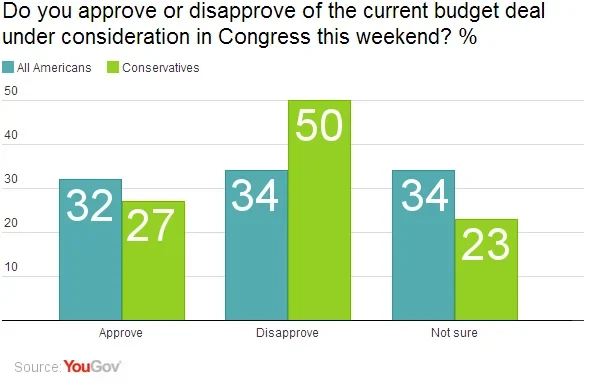
Americans are nearly evenly divided on whether they approve of the agreement, with a third saying that they aren't sure. Nearly half admit they haven’t been paying much attention to the news of the agreement – 44% have either followed the story not much or not at all. Americans who consider themselves conservatives have been paying more attention – and like the deal the least. By two to one, they disapprove of the agreement.
The partisan splits that have appeared every time there has been talk of a budget agreement continue in this poll: Democrats approve of the arrangement by nearly two to one (43% approve, 23% do not), while Republicans oppose it 40% to 25%.
The partisan and ideological differences over the value of compromise also continue. As seen in multiple Economist/YouGov polls in the last few years, Republicans divide on whether it is better to have a member of Congress who stuck to principles rather than one who was willing to compromise to get things done. In this week’s poll, 83% of Democrats favor compromise.
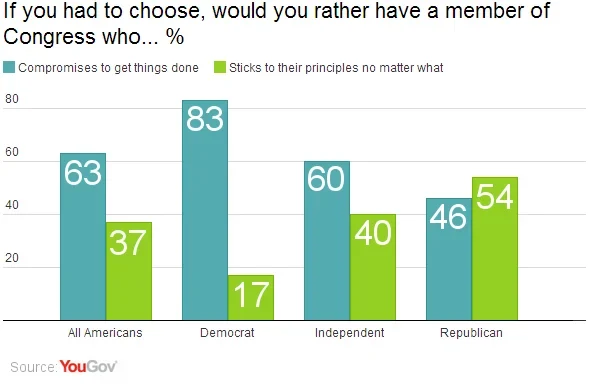
Overall, 60% of conservatives favor someone who sticks to principles, 40% support compromise.
Conservatives don’t seen much gain from the budget agreement and are nearly four times as likely to say the agreement’s costs outweigh its benefits as to say the opposite. Republicans agree with conservatives on this. Only 11% of Republicans think the agreement’s benefits outweigh the costs of the agreement.
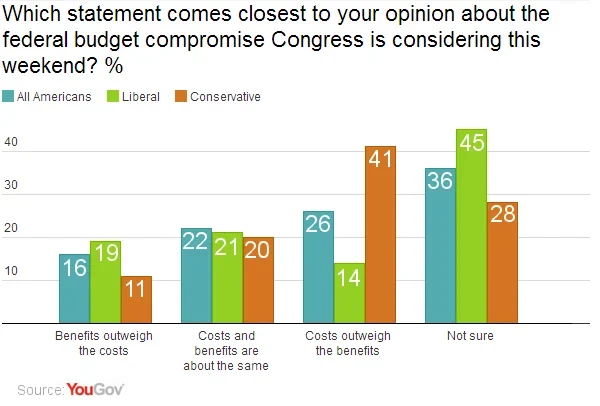
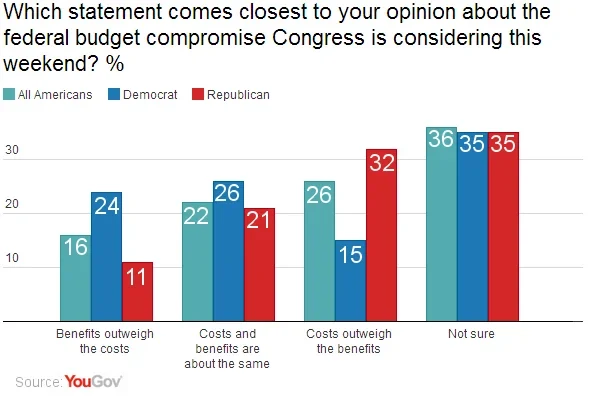
But even Democrats and liberals don’t seem to express much enthusiasm for the agreement: only a quarter of Democrats say the benefits of the compromise worked out by Senate and House Budget Committee Chairs, Democrat Patty Murray and Republican Paul Ryan, outweigh the costs. Liberals are even less sure that was the case. Overall, Americans are more likely to take the negative view.
One reason the compromise gets only limited support is that partisans are more likely to think the budget compromise resulted in the other side gaining more than their own side: Just 2% of Republicans and 8% of Democrats think their side got more in the compromise; a quarter of Democrats and more than a third of Republicans think the other side did better. However, one in four Republicans and for in ten Democrats think the compromise was just that – with each side coming out about the same.
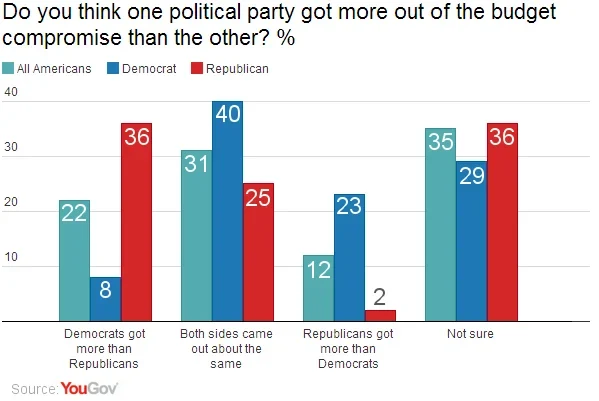
But there remains a longing for something more. One in four think neither Republicans nor Democrats gave up enough in the deal, and 47% agree that a better deal was possible. Only 16% say the deal that Murray and Ryan worked out was the best deal possible.
The budget arrangement hasn’t made much impact when Americans are asked to assess Congressional performance over the course of a year that has included a partial government shutdown, sequestration and multiple attempts to repeal the Affordable Care Act. The assessment of Congress’s accomplishments is still horrible: nearly two in three Americans believe this year’s session accomplished less than usual. That is a decrease since last week, but the drop is only six points.
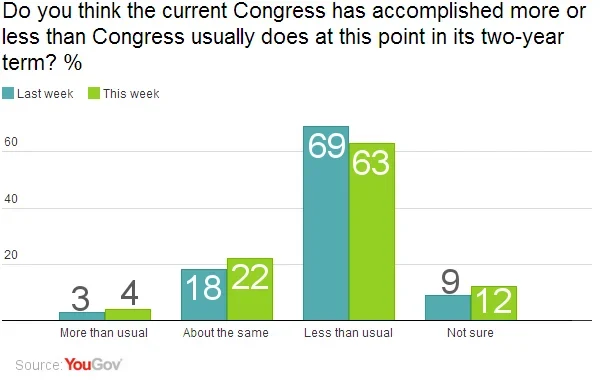
The biggest change in assessment comes from Republicans. Last week, 67% of Republicans thought Congress had accomplished less than usual in the first year of its term. This week, that percentage dropped to just 50%. 4% of Republicans now say Congress has done more than usual.
When Americans are asked who is to blame for Congress doing so little, they still blame the GOP more. 41% of those who say Congress has accomplished less than usual blame Republicans more, 19% say it’s the Democrats’ fault. As they did last week, a third blame both equally.
Congressional evaluations overall remain at a low point. Only 6% approve of the way Congress is handling its job overall, not much different from a week ago. 73% disapprove.
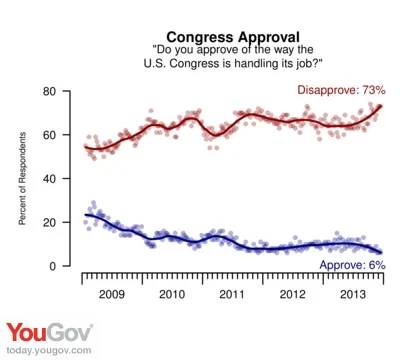
Full results can be found here.
Economist/YouGov poll archives can be found here.
Join YouGov today! Your views can shape the news...








